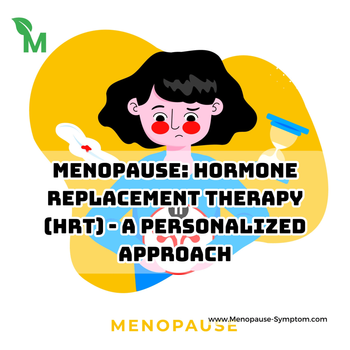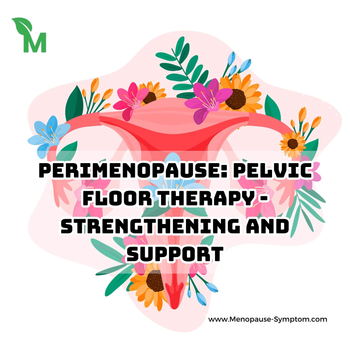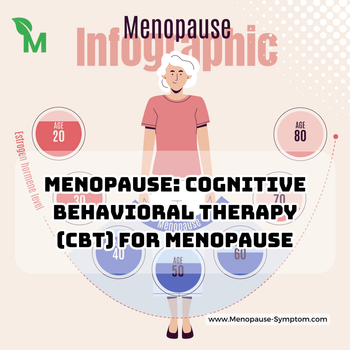Perimenopause: Hormone Replacement Therapy (HRT) - Pros And Cons
On
07/10/2024Reading time:
1 min
Summary:
In every woman's life, perimenopause and menopause are inevitable. This is a period that marks physiological changes in the body, with many unpleasant symptoms such as hot flashes, insomnia, and mood swings.
However, with the development of modern medicine, hormone replacement therapy (HRT) is recognized as an effective option to alleviate these symptoms. This article will delve into the pros and cons of HRT in the context of perimenopause and menopause.
1. Perimenopause and Symptoms
Perimenopause usually begins in the 40s, although some women may start earlier. During this stage, the amount of estrogen and progesterone hormones in the body will gradually decrease. Symptoms of perimenopause include hot flashes, night sweats, vaginal dryness, and mood swings. These symptoms can significantly impact a woman's quality of life.
Common symptoms:
· Menstrual irregularities: Menstruation may become irregular, and may come earlier or later than usual.
· Hot flashes: Many women experience hot flashes, especially at night, which can be uncomfortable and interfere with sleep. As estrogen levels decline, blood vessels may dilate rapidly, causing skin temperature to rise. This can cause a feeling of heat that spreads from the chest to the shoulders, neck, and head. Excessive sweating that dries up causes the skin to lose heat, leading to chills, fatigue, and lethargy. Hot flashes can last from 30 seconds to 30 minutes.
· Night sweats: Similar to hot flashes, night sweats can disrupt sleep or cause insomnia.
· Mood swings: Hormonal changes can lead to feelings of anxiety, depression, or sudden mood swings.
· Vaginal dryness: Decreased estrogen can cause vaginal dryness, leading to discomfort during sex.
· Insomnia : Difficulty sleeping or insomnia can occur due to hormonal changes and hot flashes. Women are prone to insomnia during this stage, so it is important to pay attention to regulating your lifestyle. Since sleep is the stage when the body recovers, if you lose sleep for a period of time, it can make other symptoms worse, due to the body being exhausted.
· Weight gain: Some women may experience changes in body weight, usually weight gain, especially in the abdominal area.
2. What is HRT?
Hormone replacement therapy (HRT) is also known as menopausal hormone therapy (MHT) or postmenopausal hormone therapy (PHT, PMHT). This therapy is used to treat symptoms that occur during perimenopause and menopause in women. These symptoms include vaginal atrophy, dryness; hot flashes; bone loss and a few other symptoms. The main cause of these symptoms is a sharp decrease in sex hormone levels during menopause.
The main hormones used in HRT are estrogen and progestogen. Progestogens are often used in addition to estrogen for women who have not had a hysterectomy, which is called “combined hormone replacement therapy” or simply “hormone therapy”. Estrogen alone (without progesterone) is associated with endometrial hyperplasia and uterine cancer, and taking progestogens reduces these risks.
3. Advantages of HRT
Reduces menopausal symptoms: One of the most obvious benefits of HRT is the reduction of menopausal symptoms. Many women report that they feel better and are able to live a more active life when using this treatment.
Improves sleep quality: Many women have difficulty sleeping well during perimenopause. HRT can help improve sleep, helping you feel more alert and energetic during the day.
Protects bone health: The decrease in estrogen during menopause increases the risk of osteoporosis. HRT can help prevent this condition by keeping bone density stable.
Positive effects on mood: HRT not only reduces physical symptoms, but can also improve mood and reduce feelings of anxiety and depression that many women experience during perimenopause.
4. Disadvantages of HRT
Health risks: Although HRT has many benefits, it can also come with risks. Research has shown that HRT can increase the risk of heart disease, stroke, and breast cancer in some cases.
Close monitoring: Women who use HRT need regular health check-ups to monitor for side effects. Monitoring not only helps detect health problems early, but also helps doctors adjust hormone doses if necessary.
Not suitable for everyone: HRT is not the right choice for all women. Those with a personal or family history of breast cancer, heart disease, or other serious health problems should discuss this therapy with their doctor before starting.
5. Types of HRT
HRT can be divided into two main types:
Combined HRT: Used for women who still have a uterus, it includes estrogen and progesterone to prevent the development of endometrial cancer.
Estrogen-only HRT: Used for women who have had a hysterectomy. This type includes only estrogen and may be easier for those who no longer have a uterus.
6. Other Options
In addition to HRT, there are many other treatment options for perimenopause symptoms that women can consider. These include:
Lifestyle changes: Improving physical fitness through regular exercise, healthy eating, and maintaining a healthy weight can help keep your body healthy and reduce symptoms.
Herbal therapies: Many women turn to herbs such as jujube, soy, and nutmeg to relieve symptoms without using hormones.
Other: Certain antidepressants or blood pressure medications may be prescribed to reduce the intensity of hot flashes.
Note: Regardless of which method you use, you should still have a health check and consult with a medical professional to make sure it is right for you.
7. Conclusion
Perimenopause and menopause are inevitable stages in a woman's life. With the advent of HRT, many women have found relief from symptoms and improved quality of life. However, the choice of HRT should be based on personal factors and overall health. Discuss with your doctor to find the treatment that is best for you. While there are pros and cons, the right choice can help you navigate perimenopause and menopause more easily.
Source: Team MPS compiled, analyzed and wrote. Please dont reup without source. Many thanks.

Menopause: Hormone Replacement Therapy (HRT) - A Personalized Approach
09.02.2024
Menopause is a natural stage in a woman's life that marks the end of her menstrual cycle and typically occurs between the ages of 45 and 55.

Perimenopause: Pelvic Floor Therapy - Strengthening and Support
10.07.2024
Perimenopause and Body Changes
Menopause is a natural stage in a woman's life, usually starting between the ages of 45-55, that marks the end of her menstrual cycle and fertility.

Menopause: Cognitive Behavioral Therapy (CBT) For Menopause
10.07.2024
Menopause is a natural stage in a woman's life, usually occurring between the ages of 45 and 55. This is a time when the body undergoes many hormonal changes, leading to unpleasant symptoms.




